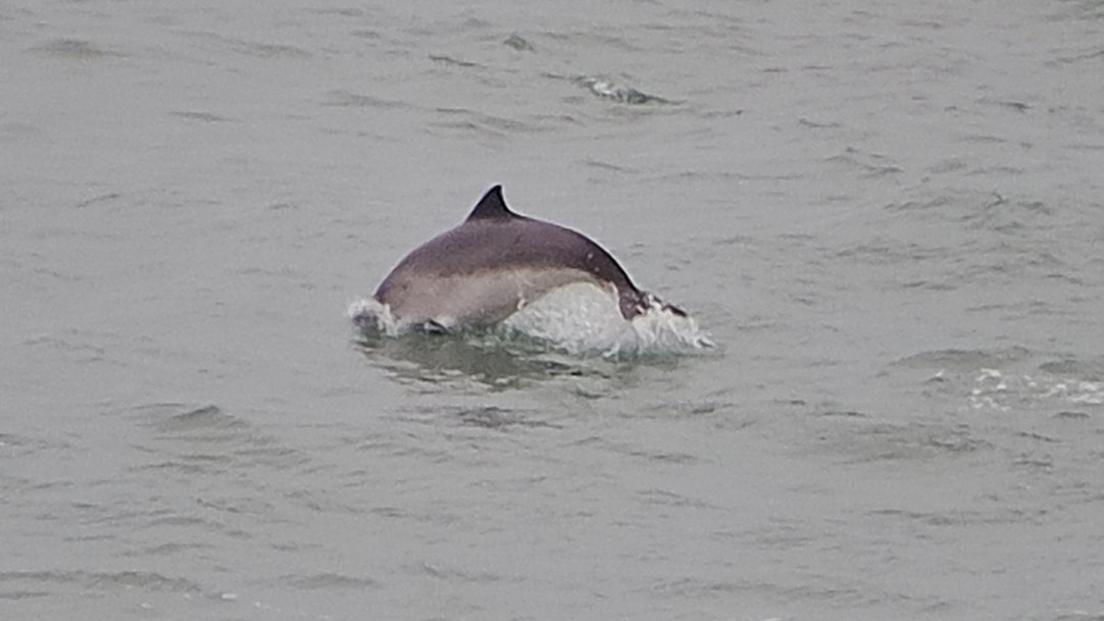Skomer and Skokholm puffins die after winter storms
- Published
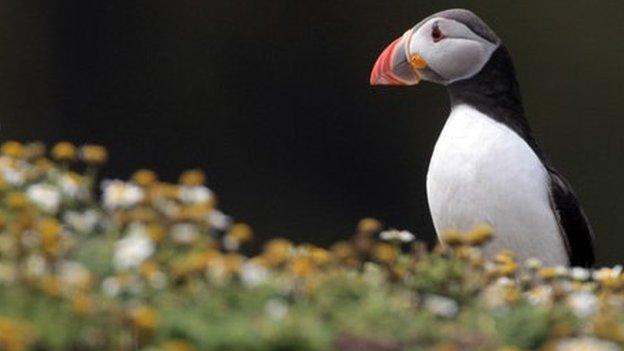
Puffins are a great attraction on Skomer and Skokholm islands
Thousands of puffins usually found on islands off Pembrokeshire are believed to have died following last winter's storms.
Researchers believe the sea birds could not get enough fish to eat after prolonged gale force winds brought in huge Atlantic swells.
Breeding has also been affected.
Experts who monitor the sea birds on the island were concerned after some 12,000 puffins were washed up dead in France after Pembrokeshire's birds went south for the winter months.
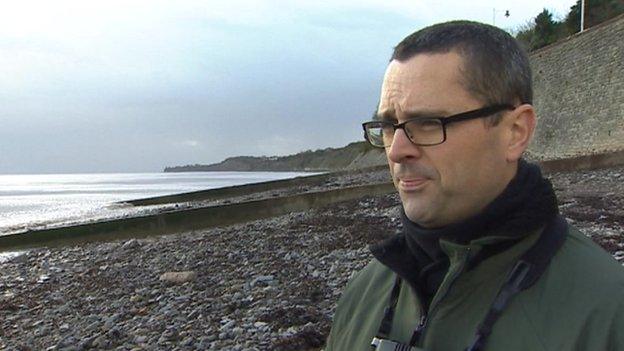
Dr Matt Wood said researchers had never seen anything like it before
In spring this year, the team of field assistants and researchers involved in Skomer's long-term studies went to the island to find out how many of the islands' 20,000 puffins would return to breed.
Dr Matt Wood, lecturer of biology at the University of Gloucestershire, said: "We found that about a quarter of the birds that we would have expected to come back never returned - that's something like 5,000 puffins in Pembrokeshire that will have died over the course of the last winter.
"We have been following puffins on Skomer for about 40 years and we have never seen anything like this before."
'Severe weather'
The researchers have also found that the puffins - which mate for life - are breeding unusually late this year.
Their chicks are hatching weeks later than normal and are being fed at only a third of the rate of 2013.
Stephen Sutcliffe, Skomer's warden from 1985 to 1994, admitted the situation was bad.
But he said the puffin numbers would probably recover - unless more extreme gales hit this winter or in the next four to five years.
"We have to be concerned," he said.
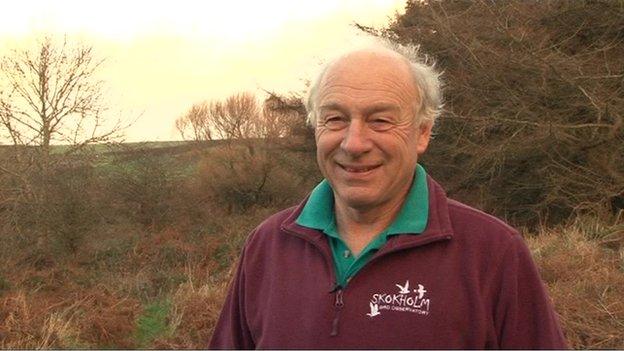
Former Skokholm warden Stephen Sutcliffe said puffins are very resilient
"These severe weather events could have a significant effect over a number of years.
"But I'm not unduly worried because sea birds are very resilient and we know from previous events, like the Sea Empress oil disaster, that they do bounce back pretty quickly.
"They only need to reproduce themselves once every 20 years."
Sea protection
Meanwhile, the waters around Skomer have been designated as Wales' first Marine Conservation Zone.
The island is already protected as the nation's only Marine Nature Reserve.
The conservation zone will not affect current levels of protection for the area but new zones could be established elsewhere.
Plans to create 10 marine conservation zones around the Welsh coast were dropped in 2013 amid concern from seafarers and the fishing industry that they could be banned from those areas.
Marine Conservation Zones are replacing Marine Nature Reserves across the UK under the 2009 Marine and Coastal Access Act, external.
- Published18 July 2013
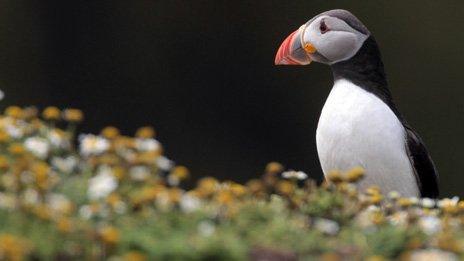
- Published16 November 2014
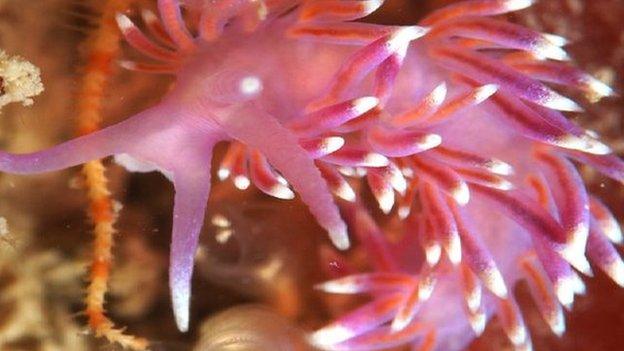
- Published12 November 2014
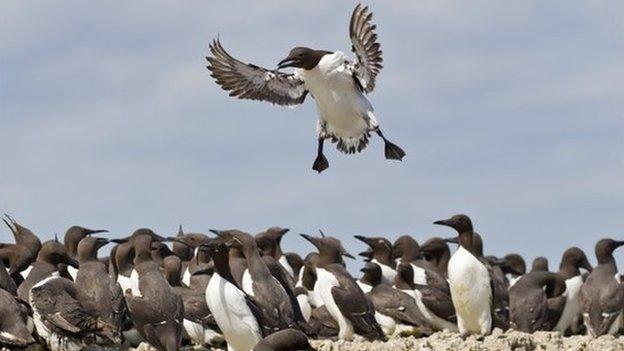
- Published7 November 2014
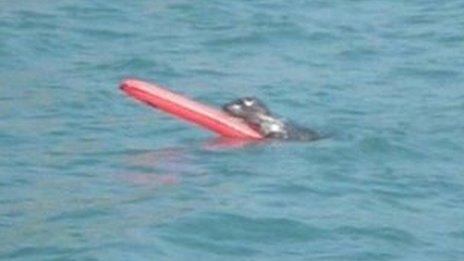
- Published2 October 2014
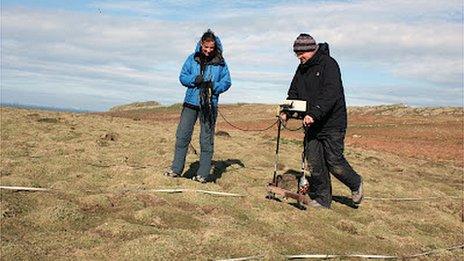
- Published7 December 2013
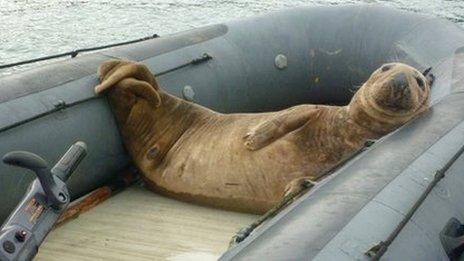
- Published6 January 2013
